What's the Life Expectancy of a Pig? (No Nonsense Answer)
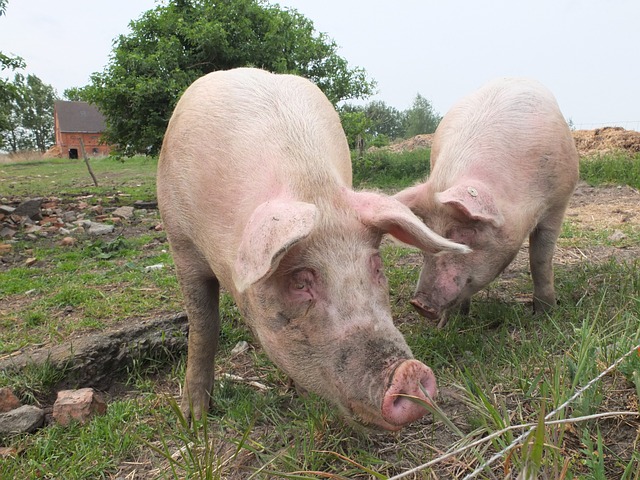
Ever wondered about the life expectancy of a pig?
Take a moment, and think.
How long do you think those oinkers stick around for?
Months?
Years?
Maybe centuries? 😄
Yeah, I understand.
Pigs aren't exactly the stuff of Methuselah.
But hey, nobody said we can't dig into the fascinating world of swine lifespans together.
So, buckle up, my friend.
I promise you're about to embark on a journey that will leave you oinking with newfound knowledge.
Let's dive in, shall we?
Average Life Expectancy of Pigs
Here's the scoop on pig life expectancy.
Outdoor pigs have it made.
They live longer because they get to enjoy the great outdoors, breathing in fresh air and soaking up the sun.
But hold your horses, here's the real deal:
Well-cared for pigs usually kick it for a sweet 15 to 20 years. Not too shabby, huh?
Those wild pigs, though?
They're not so lucky.
Their time is limited to a measly 4 to 8 years.
That's significantly shorter, my friend.
Now let's dive into the breeds.
Duroc pigs and Vietnamese Pot Belly pigs are the bee's knees for pig enthusiasts.
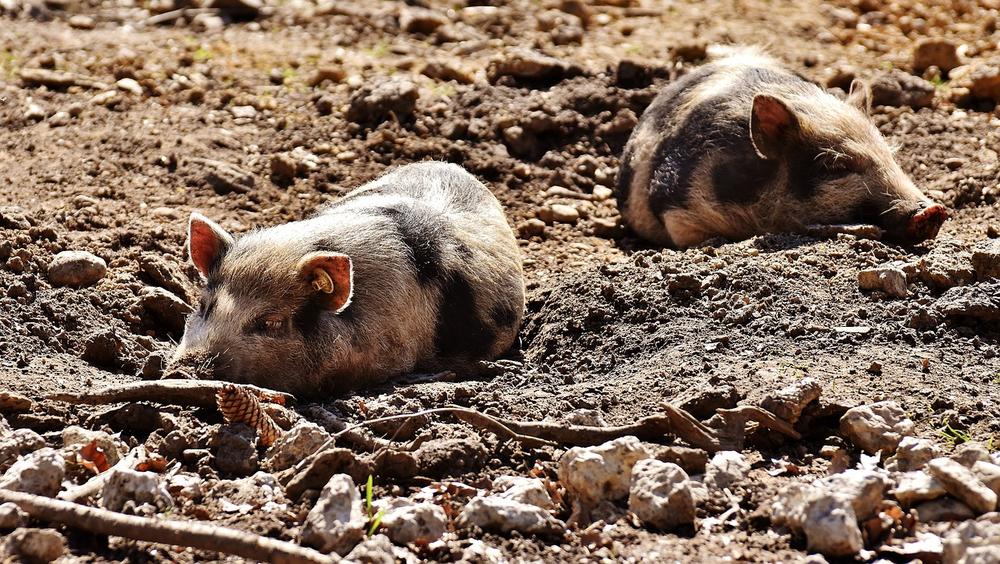
These adorable little guys sure know how to steal the spotlight!
Things go differently with their taste buds.
Male pigs bred for meat barely make it past 6 months to 2 years.
On the other trotter, female breeding pigs usually call it quits around a ripe old age of 2 years.
But wait, there's more!
Did you know that guinea pigs are part of the pig family too?
Yup, it's true.
These wee piggies stick around for about 4 to 8 years.
In captivity, pigs can stretch their bacon-loving lives to an average of 23 years.
Impressive stuff.
But if they're out in the wild, well nature has its ways, my friend.
Expect those porky creatures to shuffle off after a mere 4 to 5 years.
Main points I'll expand upon further down this article:
- Wild pigs have a shorter lifespan due to predators and sickness.
- Some pig breeds have complications and special medical needs.
- Rescued pigs can live their full lifespan of 20 years.
- Pigs reach sexual maturity at different ages.
- Teacup or Micro pigs face health issues and have a short lifespan.
- Feeding meat to pigs is prohibited due to disease transmission.
- Domestic and farm pigs raised for meat have reduced lifespans.
- Loneliness and depression can cause pigs to starve, so companionship is important.
- Regular exercise and playtime are essential for pig well-being.
- Proper care, social interaction, and a balanced diet increase life expectancy.
But let me tell you, genetic factors and breeding programs have a substantial impact on a pig's lifespan!
Factors Affecting the Life Expectancy of Pigs
Pigs' lifespans depend on a few key factors:
- The genes they inherit from their parents play a huge role in how long they live. Certain genetic factors, like disease resistance and longevity, can impact a pig's lifespan.
- Breeding programs that focus on improving these genetic traits have the power to positively affect how long pigs live.
- Wild pigs, facing constant threats from predators and diseases, tend to have shorter lives. On average, they only live between 4 to 8 years.
- Different pig breeds may have specific medical needs and complications, which can impact how long they live.
- Fun fact: wild pigs in the US actually originated from Eurasian wild boars brought over by Spanish explorers in the early 1500s. Since then, they've mixed with domestic pigs.
- Surprisingly, if a pig meant for consumption is saved and given a second chance, it has the potential to live a full 20 years.
- Female pigs usually reach sexual maturity around 6-7 months of age, while males mature at around 12 months.
Knowing these important factors that influence pig life expectancy can help both pig farmers and enthusiasts make smarter choices when it comes to breeding and taking care of these animals. 😊
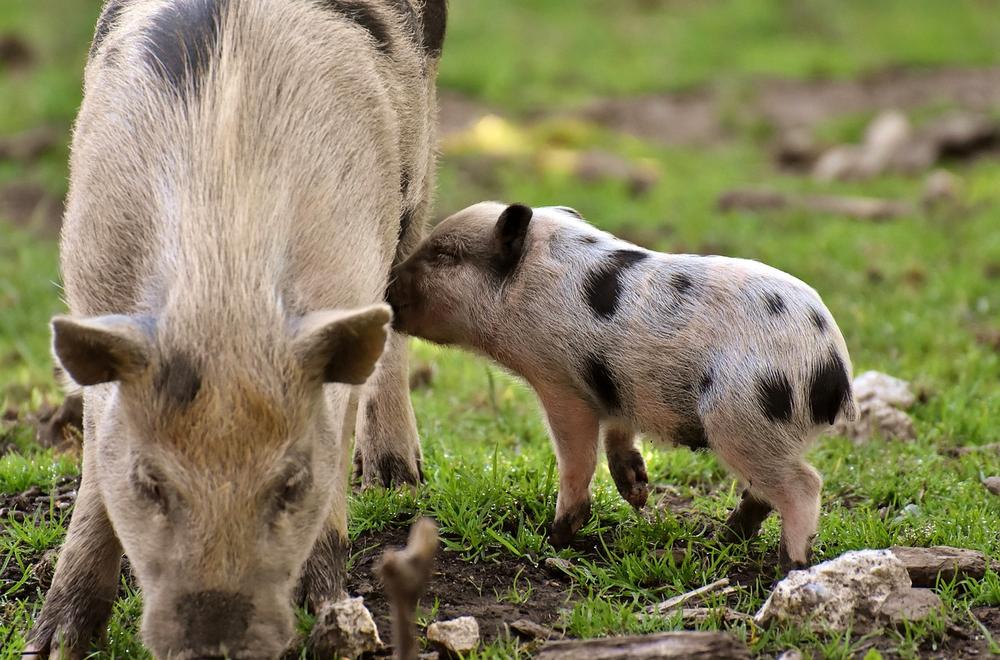
To delve deeper into the fascinating world of pigs and gain insights into their natural behavior and weaning practices, I invite you to explore my blog post on How Long Do Piglets Stay With Their Mothers.
Factors Impacting the Decrease in Pigs' Life Expectancy
Pigs don't have it easy, you know.
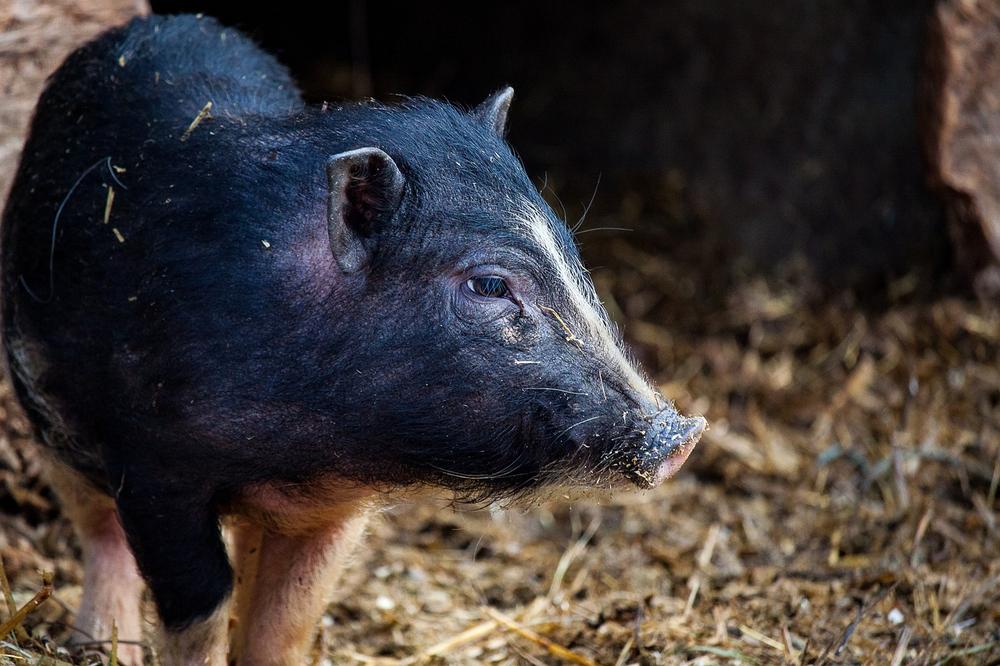
Let me break it down for you:
- That whole intensive farming thing? Yeah, it's no good for pigs. They can't move around much, so their muscles and joints go to hell.
- Miniature pig breeds may be cute, but they've got health problems galore. Obesity is a big one.
- And hey, let's not forget the no-no of feeding meat to pigs. Diseases are a real concern here, so that's off the table.
- If you're talking about commercial pigs in the U.S., they get pumped up pretty fast before heading off to market. So naturally, their life expectancy takes a hit.
- It's not just farm pigs either. Even your average domestic pig raised on a diet centered around bacon loses out on some years.
- You might think wild pigs have it better, but nah. More dangers and threats mean shorter lifespans for them too.
- Now, those teacup pigs? Adorable little things, right? Well, they were meant to live around 12 to 18 years, but most of 'em keel over by year 5 because of all sorts of health troubles.
So yeah, with all these factors piling up, pigs sadly don't get the long and happy lives they deserve.
And it gets better...
There are simple steps you can take to improve a pig's quality of life and potentially extend their years.
So, let me share with you the key factors that contribute to a longer life expectancy for these remarkable animals...
Factors that Can Increase the Life Expectancy of Pigs
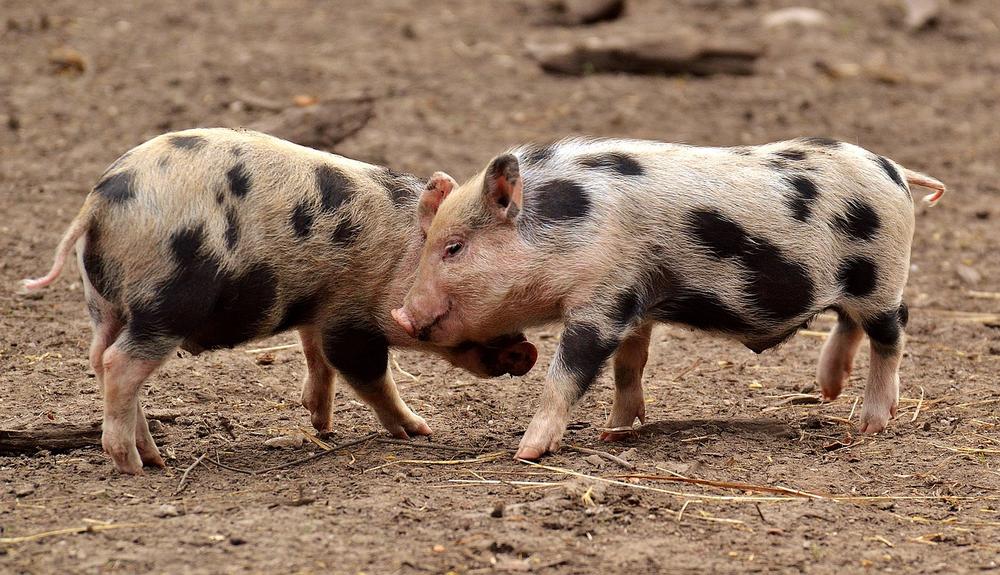
Factors that Can Increase the Life Expectancy of Pigs:
- Enrichment activities and objects: Providing pigs with toys or puzzle feeders not only stimulates their curiosity but also prevents boredom, which can contribute to a longer life span.
- Companionship: Loneliness and depression can lead to pig starvation, so you should provide them with a companion for social interaction and all in all well-being.
- Regular exercise and playtime: Just like humans, pigs need physical activity and play to maintain their health and increase life expectancy.
- Breeding animals stay longer on farms: On average, breeding animals remain on the farm for 1.5 years longer than market pigs, resulting in a longer life span.
- Domesticated pigs have longer lifespans: Compared to their wild counterparts, domesticated pigs generally live longer due to better care and living conditions.
- Access to mud for cooling: Pigs cool down by wallowing in mud, helping them regulate body temperature and avoid heat stress.
- Proper diet: Pigs require a specially formulated diet tailored to their nutritional needs to thrive and increase life expectancy.
By considering these factors, you can improve the quality of life and extend the life expectancy of your pigs. Taking care of their mental and physical well-being is key!
Importance of Proper Nutrition for Pigs' Life Expectancy
Proper nutrition is crucial for pigs' life expectancy. 🐷
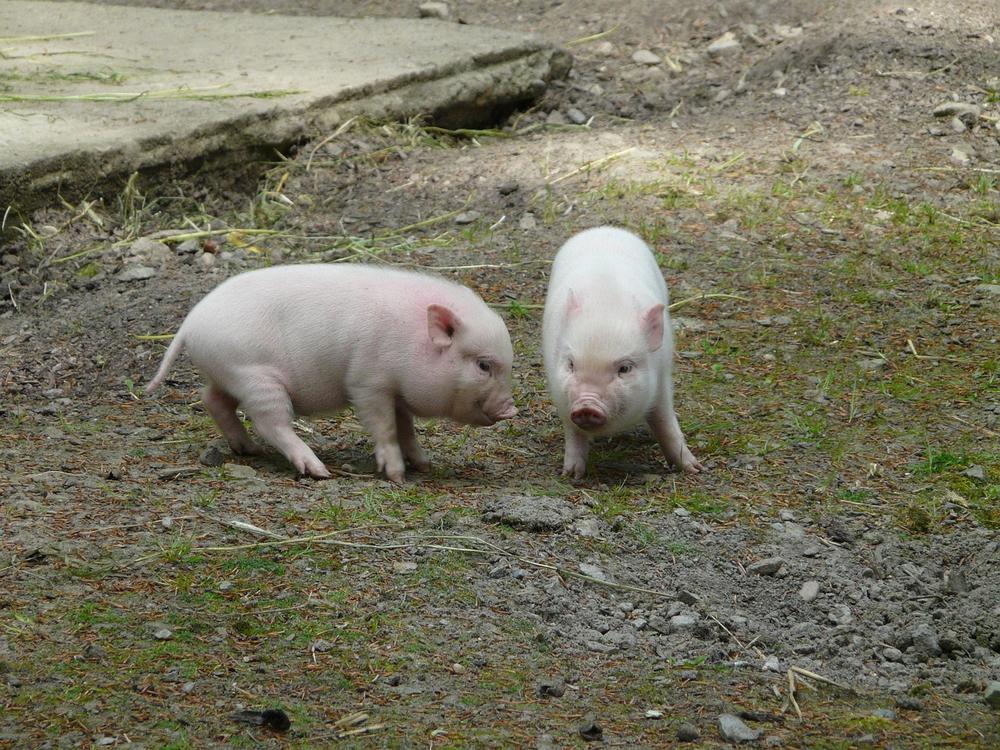
Here are some important points to consider:
- Ensure a balanced diet with the right calcium-to-phosphorus ratio.
- Imbalances can lead to skeletal disorders and impaired growth.
- Real pig pellets contain all necessary nutrients.
- Hydration is key, as pigs cannot sweat.
- Obese pigs can face health issues, so prevent overfeeding.
- Green vegetables and grazing on grass are essential for a varied diet.
- Specially formulated pig chow meets their nutritional needs.
- Avoid excessive treats.
- Various pig health issues can impact lifespan significantly.
Taking proper care of your pig's diet will contribute to their in essence well-being and lifespan.
The Vital Role of Veterinary Care in Improving Pigs' Life Expectancy
Keeping pigs healthy and increasing their life expectancy is no joke.
It requires proper veterinary care, immunization programs, and regular check-ups.
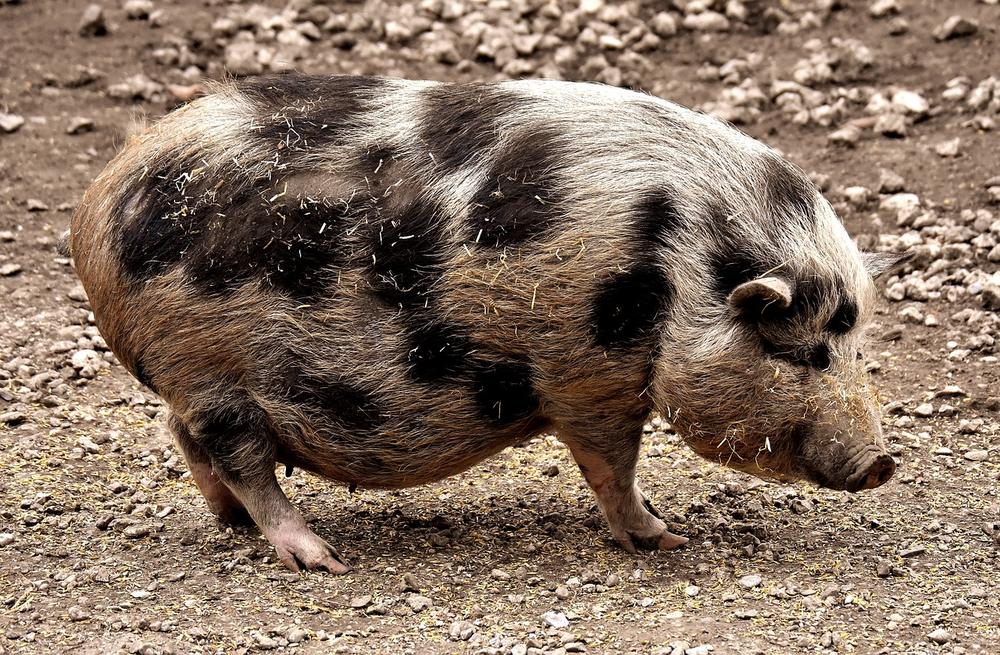
Let me tell you how these things can make a difference:
- Immunization programs customized for prevalent pig diseases are crucial in preventing major outbreaks and boosting pig health.
- Regular check-ups with a veterinarian along with necessary vaccinations are must-do's to ensure pig well-being.
- Veterinary care, deworming, and proper hoof care are vital for pig's all in all health.
- Spaying or neutering procedures should be carried out when applicable to prevent certain health issues.
- Promptly seeking professional assistance for sick or injured pigs is of utmost importance.
- Monitoring their food intake and routine tusk filing also contribute to maintaining pig health.
Enhance the lifespan of your pigs substantially by adhering to these instructions. Subsequently, why delay?
Take good care of them and watch them thrive!
Now that you understand the vital role of veterinary care in improving pigs' life expectancy, let's explore another important aspect that can significantly impact their well-being.
But did you know that something as simple as the bedding materials you choose can make a remarkable difference?
You won't believe how providing suitable bedding can contribute to thermal insulation and cushioning for pigs, potentially reducing the risk of injuries and increasing their lifespan.
Intrigued?
Let's dive in...
Environmental Factors that Influence Pigs' Life Expectancy
Suitable bedding materials, like straw or wood shavings, offer thermal insulation and cushioning to pigs. This reduces the risk of injury from falls and physical stress, potentially increasing their lifespan.
Extreme weather can pose health risks to pigs.
They may suffer from heat stroke or pneumonia.
You must be vigilant in monitoring their well-being and ensuring they have access to both sunlight and shade.
Doing so provides protection from excessive sun exposure, which can harm them.
Effects of Housing Conditions on Pigs' Life Expectancy
Pigs live longer and happier lives when their housing conditions are taken into account.
Here's what you need to consider:
- Give them plenty of room to move, exercise, and be themselves. It keeps their hearts healthy and muscles strong.
- Keep their living area clean and dry. Good hygiene prevents diseases and infections, which means better overall health.
- Shield them from rough weather like rain, wind, or extreme heat. A cozy and temperature-controlled environment is key for their well-being.
- Stimulate their minds. Pigs are smart creatures that need mental challenges. Toys, puzzles, and activities keep them from getting bored and improve their quality of life.
- Let them roam freely. Giving pigs the freedom to explore contributes to their physical and mental fitness. Restricting movement can cause stress and frustration.
- Health all around. By meeting these housing requirements, not only are you keeping pigs healthy, but you're also extending their life expectancy. When pigs have optimal conditions, they thrive and live longer.
When you make the effort to prioritize pig welfare through proper housing, you're making a positive impact on their happiness, health, and ultimately how long they live.
How to Ensure a Longer Life for Your Pet Pig
Creating an enriching outdoor environment
You know, when it comes to pet pigs, they absolutely love having space to explore and lots of fun things to do.
If you want your pig to be happy and live a long life, you must create an outdoor area that resembles their natural habitat.
So, what can you do?
Firstly, ensure your pig has a nice grassy space where they can run and have a great time rooting around.
Pigs are natural foragers, so you should provide them with opportunities to dig and discover hidden food in the ground.
In addition, adding objects like logs, stumps, and branches can give your pig something exciting to interact with.
They'll have a blast searching through these items and exploring new things, which will keep their minds active and entertained.
Adopting pigs over supporting illegal breeders
Let me tell you, adopting a pig is the way to go!
By giving a deserving piggy a loving home, not only are you doing something wonderful, but you're also helping put a stop to illegal breeding.
Before bringing a pig into your life, you ought to check the regulations and requirements in your local area.
Different countries may have specific laws about keeping pet pigs, so you need to familiarize yourself with those before making any decisions.
Making sure you have all the necessary licenses or permits should be your top priority.
This ensures that you're following the law and able to provide the best care possible for your pig.
Be aware of potential long lifespans
Now here's something interesting:
Did you know that depending on the species, pet pigs can live much longer than you might expect?
You should be prepared for this potential lifelong commitment when considering getting a pig as a pet.
Take the time to research and gather information about the typical lifespan of different pig breeds.
Having this knowledge allows you to plan ahead and provide the absolute best care for your pig throughout their entire life. After all, who doesn't want to give their piggy companion a long and happy life?
And that's all for today folks.
You made it to the end of my blog post, so let me ask you something: Did you enjoy reading it? I put a great deal of effort into writing comprehensive and helpful blog posts. It takes up quite a bit of my time (in a good way), so it would mean a lot to me if you could click on any of the social sharing icons to share this post with others. Thank you so much!
Until next time,
-Chris Campbell